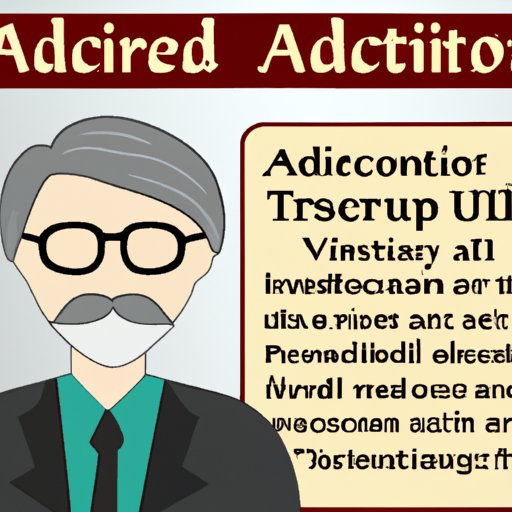Introduction
An adjunct professor is a temporary faculty member at a college or university who is hired to teach one or more courses on a part-time basis. These professors typically have their own professional careers and are hired to teach specific courses based on their expertise. Becoming an adjunct professor is a great way to gain experience in higher education, while also providing you with the opportunity to continue your own professional pursuits. The following article provides an overview of the qualifications, requirements, and tips needed to become an adjunct professor.
Research Adjunct Professor Requirements
The first step to becoming an adjunct professor is to understand the qualifications and licensure requirements. Most institutions require potential adjunct professors to have a master’s degree in the subject they plan to teach, and some may even require a doctoral degree. Additionally, it is important to familiarize yourself with course descriptions and the institution’s faculty needs. Once you have a thorough understanding of the requirements, you can begin the process of applying for adjunct professor positions.
Prepare a Resume and Cover Letter
When applying for an adjunct professor position, it is important to create a professional resume and cover letter. Your resume should highlight your relevant qualifications and any prior teaching experience. It is also important to tailor your resume and cover letter to the institution and position you are applying for. Make sure to include any special skills or qualifications that could be beneficial to the institution.

Network with Professionals in the Field
Networking is key when it comes to obtaining an adjunct professor position. Utilizing professional associations, attending conferences and events, and reaching out to colleagues and mentors can help you build relationships and make connections in the field. Networking can also provide you with valuable feedback and advice on your qualifications and application materials.
Contact Higher Education Institutions
Once you have created your resume and cover letter, it is time to start contacting higher education institutions. Identify schools in your area and submit your application materials. Make sure to follow up with each institution to ensure they received your documents and to inquire about the status of your application. Be persistent and don’t give up if you don’t hear back right away.
Develop Your Teaching Skills
Before you begin teaching, it is important to brush up on subject matter and become familiar with teaching strategies. Practice presenting to groups and obtain course materials such as required texts and supplies. Source online resources and prepare lectures and assignments. Doing this will help you feel more confident and prepared for the classroom.

Stay Up to Date on Trends and Best Practices
Finally, it is important to stay up to date on trends and best practices in higher education. Read journals, magazines, and newsletters related to the field. Participate in professional development opportunities such as webinars, workshops, and seminars. Attending these events can provide you with valuable insight into current trends and best practices.
Conclusion
Becoming an adjunct professor can be a rewarding experience. It is essential to research the qualifications and licensure requirements, create a professional resume and cover letter, network with professionals in the field, contact higher education institutions, develop your teaching skills, and stay up to date on trends and best practices. With the proper preparation and dedication, you can become an effective adjunct professor.
The benefits of becoming an adjunct professor include gaining valuable experience in higher education, expanding your professional network, and having the opportunity to pursue your own professional interests. With the right qualifications and dedication, you can successfully become an adjunct professor.
(Note: Is this article not meeting your expectations? Do you have knowledge or insights to share? Unlock new opportunities and expand your reach by joining our authors team. Click Registration to join us and share your expertise with our readers.)
